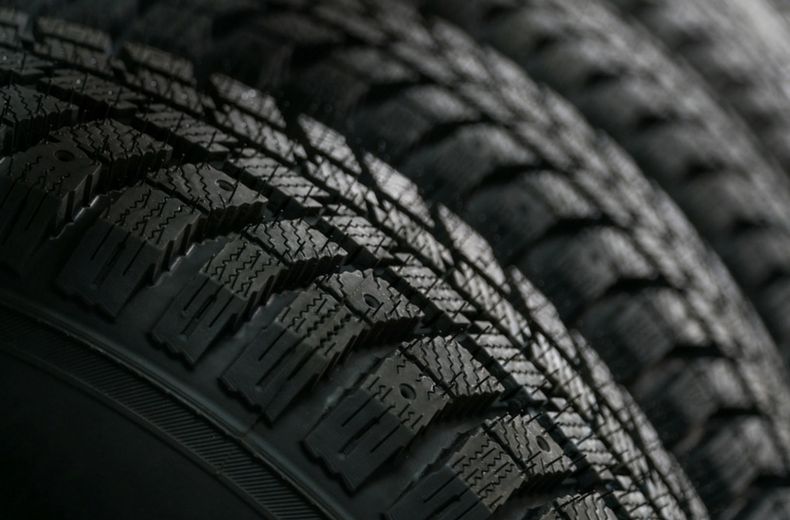Speculation about the tax emerged last year when the previous Government hired environmental advisers to address the impact of harmful particle emissions from tyres, although Whitehall officials have since denied there were any such plans. Tyres that wear more quickly could be taxed more due to the greater number of particles shed onto the road and into the air.
The idea of a tax is a subject of contention for two-thirds (66%) of motorists who believe it would do more harm than good, while 24% are unsure what impact it would have, if any. Only 10% believe it would be a positive step.
Aside from 69% of drivers citing concerns about road safety, only one-in-10 (9%) motorists feel such a tax would achieve its intended goal of reducing pollution levels, whereas 10% believe it would only make the cheapest tyres more expensive.
As tyres deteriorate, they release tiny particles including rubber, toxic chemicals and metals like zinc and lead, which can become airborne and washed or blown into rivers and seas. They constitute one form of particulate matter pollution – everything in the air that isn’t a gas, made up of chemical compounds and materials.
While government data shows tyre pollution is only one part of the particulate matter problem, it contributes significantly to non-exhaust emissions alongside brake and road surface wear. A government commissioned study revealed that non-exhaust emissions are now the primary source of particulate matter emitted from UK road transport.**
Although 59% of motorists are aware particles contribute to air and water pollution, three-quarters (75%) admit they never think about the environmental impact of their own tyres.
RAC head of policy Simon Williams said: “Ironically, drivers feel a tyre tax could do far more harm than good. Cheaper and part-worn tyres disintegrate and pollute much faster than premium alternatives, meaning it’s these budget-friendly options that would probably be taxed more.
“Making cheaper tyres more expensive could discourage drivers from getting theirs replaced when they should, inevitably leading to them driving with illegal levels of tread and compromising the safety of all road users.
“It’s also important to realise that poor road surfaces dramatically increase the speed at which a tyre wears out, so the longer the UK’s pothole problem continues, the more hazardous particles will be shed from tyres.”
Durability and purchase incentives
According to the RAC’s research, more than eight-in-10 drivers (81%) say they would be prepared to pay more than usual for a tyre that lasts longer. Currently, drivers can make informed decisions about which tyres they buy based on the wet grip, fuel efficiency and external noise, but there is no guidance about durability or lifespan.
A large majority of those surveyed would welcome this information on tyre labels, with 83% believing the regulations should be updated to state how long tyres are likely to last.
Interestingly, seven-in-10 (72%) drivers say they prefer to have the best tyres possible, with 54% feeling they are the safest option and nearly a quarter (23%) claiming they had had a bad experience with cheaper alternatives.
On the other hand, just 11% of those questioned tend to buy budget tyres, 24% of which are aged 17 to 34. When asked why they normally choose budget-friendly options, nearly two-thirds (65%) of all drivers said it was all they could afford at the time while a third (32%) said they look to spend as little on tyres as they can.
More than a quarter (26%) said that when it came to changing their tyres, they just opted for the same one as they were replacing.
Simon Williams continued: “Tyres are normally a distress purchase because you only ever buy them when they’re worn down. Without guidance at the point of sale, there’s little information out there to help drivers understand why durability is important.
“Driving a car with bald tyres is not only extremely dangerous, it can be incredibly costly if you’re caught by the police because the offence carries a fine of up to £2,500 and three penalty points on your driving licence.
“Fortunately, you can easily check if your tyres are legal using a 20p coin. Insert the 20p into the tread grooves and if you can’t see the outer band on the coin, your tyres are above the legal limit. But if any part of the outer section of the coin is visible, it’s a sign your tyres could be unsafe and need to be checked by a tyre fitter.”
To make sure your car is kept in tip-top condition it’s important to get it serviced regularly. RAC Mobile Mechanics can provide a convenient and competitive service from your home or workplace.

RAC sale – up to 33% off*
• Roadside cover from £5.29 a month†
• We get to most breakdowns in 60 mins or less
• Our patrols fix 4/5 breakdowns on the spot

* Research conducted on RAC’s behalf by Online95 among 2,027 UK motorists, all of whom drive at least once a month.
** Department for Transport and Ricardo: Measurement of emissions from brake and tyre wear states: ‘Non-exhaust emissions (NEE) are now the primary source of PM10 and PM2.5 from road transport in the UK.’










